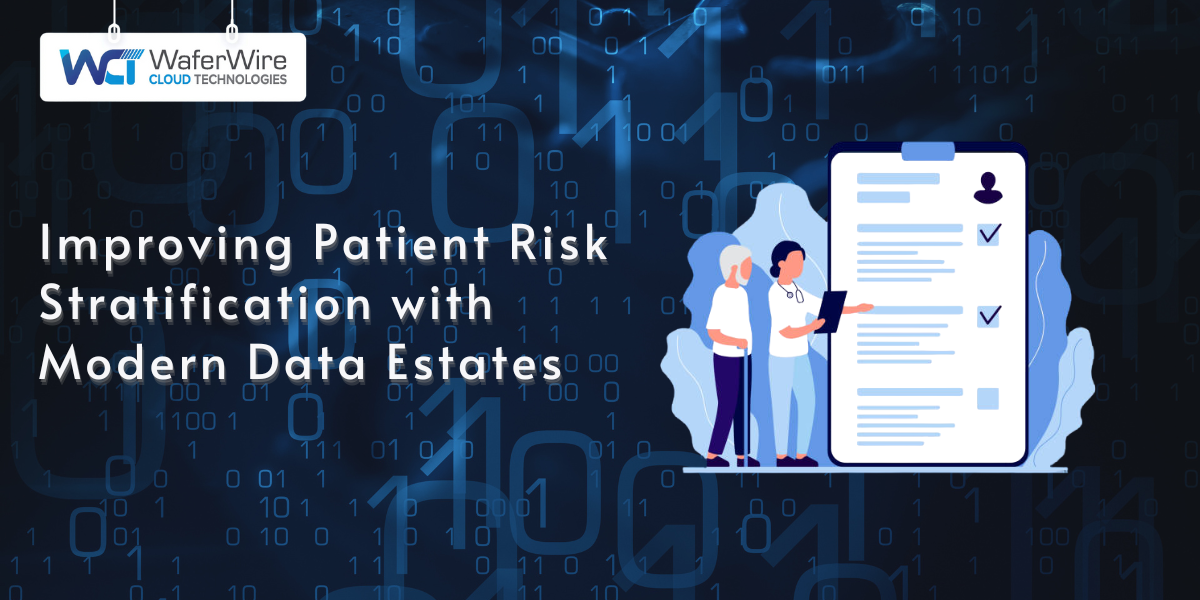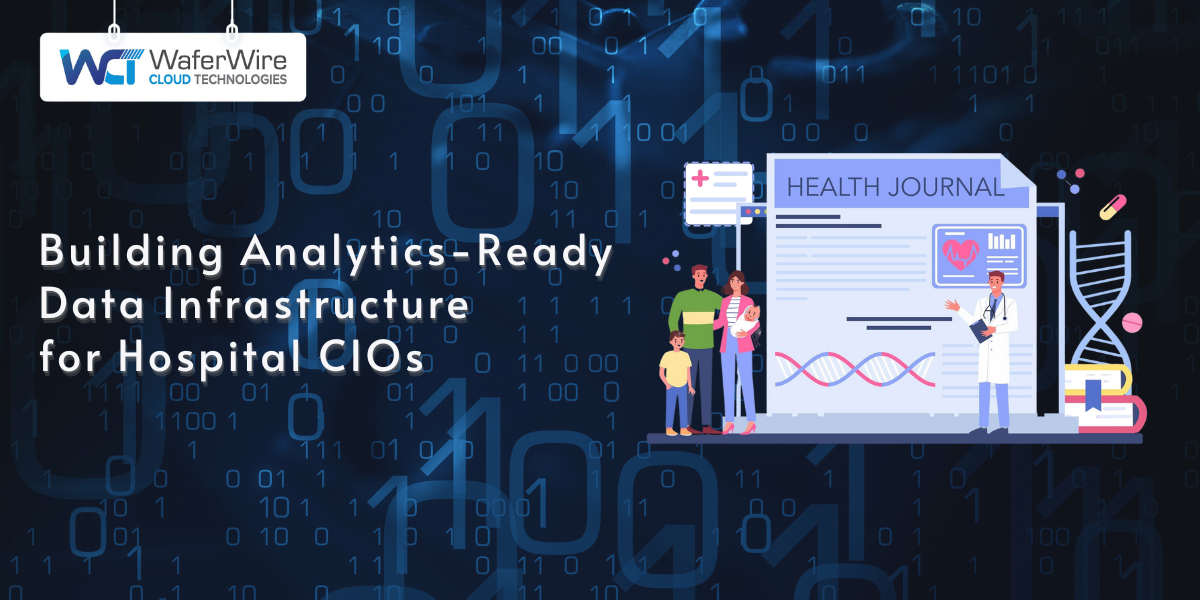
Enterprise Resource Planning: Essential Guide 2025
Harish
14th Aug 2025
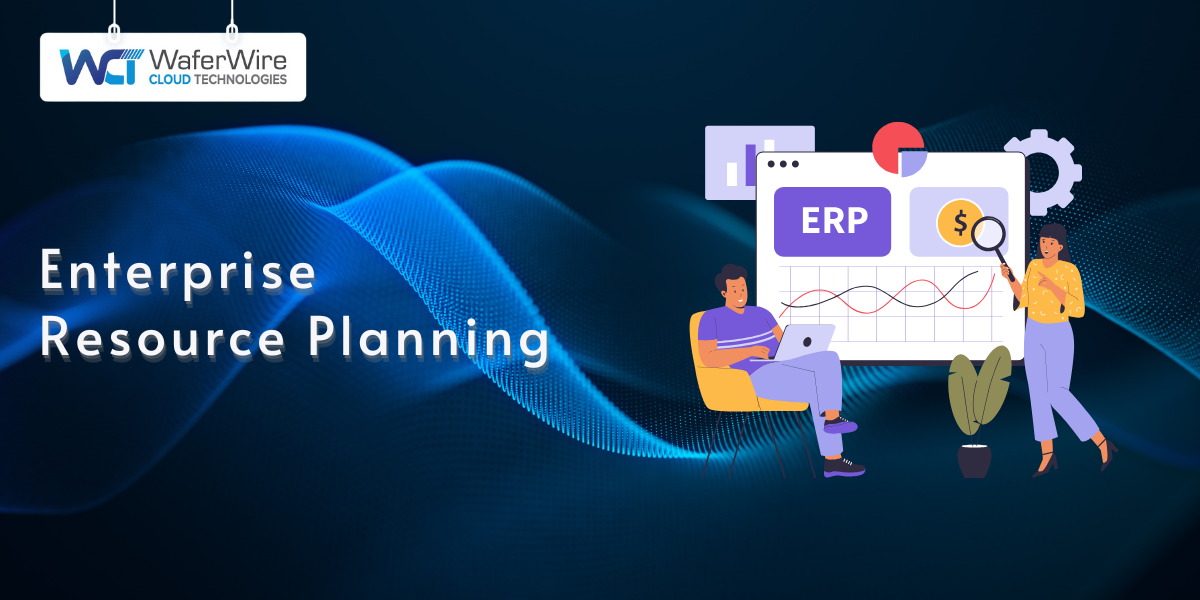
Talk to our cloud experts
Subject tags
How well are your current systems supporting your business growth? In an era where data-driven decisions, efficiency, and agility are key to staying ahead, relying on fragmented or outdated systems can hold you back.
Beyond 2025, Enterprise Resource Planning (ERP) platforms will be more critical than ever for businesses looking to scale, improve efficiency, and support customer experiences. Whether you're in retail, manufacturing, or financial services, a modern ERP system can transform how your business operates, allowing you to connect departments, optimize workflows, and gain a 360-degree view of your organization.
This guide will explore how modern ERP systems are revolutionizing business operations, why they’re essential for enterprises and mid-market companies today, and how to choose the right platform to drive growth and efficiency.
Key Takeaways
- Modern ERP systems centralize business operations into a unified platform, helping businesses streamline processes, improve collaboration, and make data-driven decisions.
- ERP platforms provide significant value by enhancing operational efficiency, offering real-time insights, and automating routine tasks, ultimately driving cost savings and scalability.
- Businesses can choose from various ERP deployment options—cloud, on-premise, or hybrid—based on their specific needs, budget, and security preferences.
- A modern ERP system is essential for businesses looking to scale, improve customer experience, ensure regulatory compliance, and stay competitive in today’s fast-paced market.
- Selecting the right ERP platform and implementation strategy is crucial for maximizing the system's benefits, reducing operational inefficiencies, and improving business agility.
What is an Enterprise Resource Planning (ERP) Platform?
%20Platform.png)
An Enterprise Resource Planning platform integrates various business processes into a single system. From managing financial transactions and human resources to tracking inventory and handling customer relations, ERP platforms unify all these functions into one cohesive solution. This integration provides businesses with a centralized database that ensures accurate, real-time data access across departments.
Modules of ERP
ERP platforms typically include various modules that handle different aspects of a business:
- Finance and Accounting: Automates financial processes such as budgeting, accounting, and reporting, ensuring accurate financial management and compliance.
- Supply Chain Management: Manages inventory, procurement, order processing, and logistics, enabling organizations to optimize the flow of goods and services.
- Human Resources (HR): Handles employee data, payroll, benefits administration, and recruitment, streamlining HR operations.
- Sales and Customer Relationship Management (CRM): Manages customer interactions, sales processes, and order tracking, improving customer satisfaction and retention.
Now that we understand what ERP is, let’s get into the core business value these systems offer, especially in the context of 2025.
The Business Value of ERP in 2025

As businesses continue to better our digital world, the role of Enterprise Resource Planning systems has never been more critical. In 2025, ERP platforms will have become the backbone of business strategy, driving efficiency, enabling growth, and enhancing decision-making processes. Here's a look at the business value of ERP in the current and future business landscape:
1. Centralized Data and Real-Time Insights
One of the most significant benefits of modern ERP systems is to centralize data from across an organization into a single, unified platform.
- Real-Time Decision Making: With access to up-to-date data, business leaders can make informed decisions quickly, helping them stay ahead of competitors.
- Improved Data Accuracy: Automation reduces manual data entry errors, ensuring that decisions are based on accurate, consistent information.
2. Enhanced Operational Efficiency
ERP systems are designed to automate tasks, streamlining processes such as inventory management, order processing, payroll, and more.
- Process Automation: With built-in automation, tasks that once took hours or days can be completed in minutes, improving overall productivity.
- Resource Optimization: By efficiently managing inventory, human resources, and production, ERP systems enable businesses to get the most out of their available resources.
3. Scalability and Flexibility for Growth
In 2025, businesses are more likely to experience rapid changes—whether due to market demands, customer expectations, or global expansion.
- Adaptability: Modern ERP platforms, especially cloud-based solutions, allow businesses to quickly adapt to new challenges, whether it's launching new products, expanding into new regions, or integrating with new technologies.
- Easier Expansion: As your business grows, ERPs can easily handle additional users, departments, or business units, without the need for costly infrastructure upgrades.
4. Cost Reduction and Profitability
Despite the initial investment, ERP systems often lead to significant cost savings. By simplifying processes, data accuracy, and manual workloads, businesses can lower operational costs and improve profitability.
- Reduced Operational Costs: Automating processes and improving inventory management minimizes waste and reduces operational costs.
- Increased Profit Margins: With better financial tracking, businesses can identify more profitable products or services, optimize pricing strategies, and improve financial forecasting.
5. Better Customer Experience
An ERP system's integration of customer relationship management (CRM) features plays a pivotal role in enhancing the overall customer experience.
- Faster Response Times: With access to customer data, businesses can address customer inquiries, complaints, and orders more efficiently.
- Personalized Services: Data from ERP systems allows companies to understand behavior and preferences, enabling them to offer tailored services and build stronger relationships.
6. Compliance and Risk Management
ERP platforms help businesses manage compliance by automating key functions and ensuring they adhere to the required standards.
- Regulatory Compliance: ERP systems often come with built-in tools that help businesses adhere to regulations such as GDPR, HIPAA, or financial reporting standards.
- Risk Mitigation: By providing a clear, up-to-date view of operations and financials, ERP platforms help businesses identify risks and fix them before they escalate into bigger issues.
7. Empowering Employee Productivity and Collaboration
Modern ERP platforms are designed to empower employees at all levels of the organization.
- Improved Collaboration: Integrated communication tools within ERP systems allow teams to share information and updates seamlessly.
- Employee Empowerment: With self-service capabilities, employees can access the data and tools they need without having to rely on IT or administrative teams.
While ERP systems provide value in many areas, understanding how they work can give you a deeper insight into why they are so crucial for your operations.
How Do ERP Systems Work?
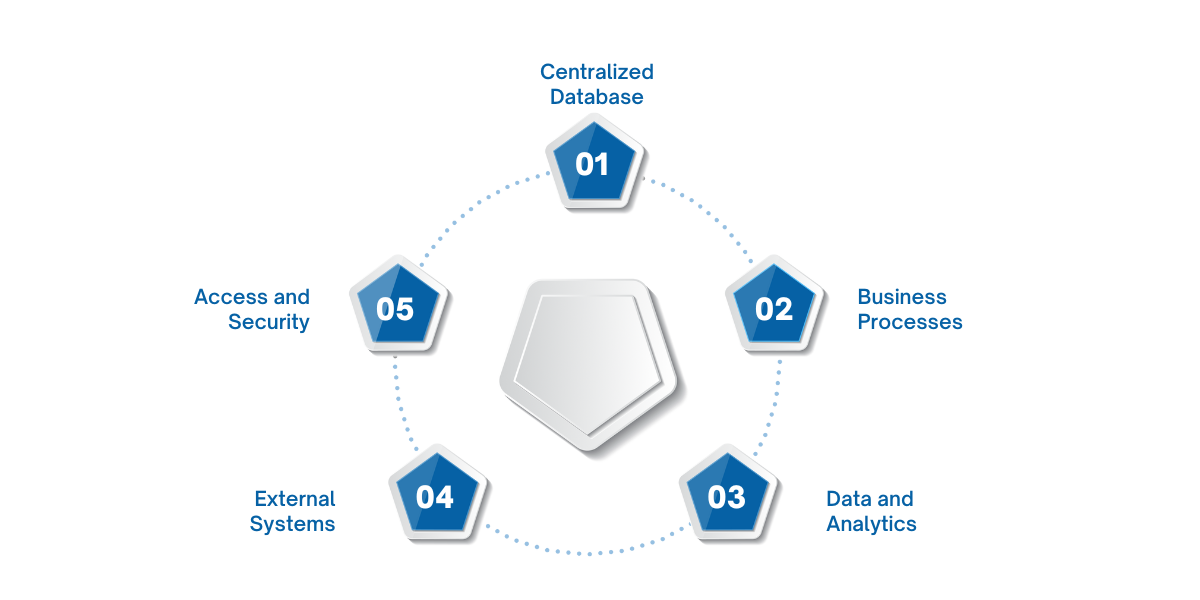
Enterprise Resource Planning systems integrate core business functions into a unified platform, allowing for real-time data access, process automation, and streamlined decision-making across the entire organization. Here’s a breakdown of how ERP systems work and the key components involved:
1. Centralized Database
This database stands as the single source of truth, storing all business data in one place. Whether it’s sales transactions, inventory levels, financial data, or employee records, the ERP platform ensures that everyone across the organization is accessing the same up-to-date information.
- Integration of Data: Different departments, such as finance, HR, sales, and inventory, use the same data, ensuring consistency and reducing errors that can arise from siloed systems.
- Real-time Updates: Changes made in one area of the system—such as an update to inventory—are reflected immediately across the entire platform, ensuring that teams are working with the most current data.
2. Automation of Business Processes
One of the key features of ERP is their ability to automate business processes, reducing manual effort, increasing accuracy, and improving efficiency.
- Order Management: When a customer places an order, the ERP system automatically updates inventory levels, generates invoices, and sends the order details to shipping.
- Financial Reporting: The system can automatically generate financial statements, balance sheets, and reports based on real-time data, streamlining financial operations.
- Employee Payroll: The ERP can automatically calculate payroll based on timesheets, tax regulations, and benefit contributions.
This automation frees up employees from repetitive tasks, allowing them to focus on higher-value activities.
3. Real-time Data and Analytics
ERP offer powerful data analytics and reporting capabilities. By centralizing all business data, ERP platforms provide insights that help leaders make necessary decisions based on real-time information.
- Dashboards and Reporting Tools: Most ERP systems come with customizable dashboards that allow managers and executives to view key performance indicators and track business performance at a glance.
- Predictive Analytics: Modern ERP systems may incorporate AI and machine learning to manage historical data and predict future trends, helping businesses plan for demand fluctuations or market changes.
With tracking performance in real-time, ERP systems enable quicker, more accurate decision-making.
4. Integration with External Systems
In today’s interconnected business environment, ERP systems often need to integrate with other external systems, including CRM platforms, supply chain management tools, and third-party software like email marketing tools or payment gateways.
- Seamless Integration: ERP systems use Application Programming Interfaces (APIs) to integrate with other software platforms, allowing for a unified data flow across systems.
- Better Interdepartmental Collaboration: By linking external and internal systems, ERP platforms break down departmental silos, allowing for smoother collaboration and more efficient workflows.
5. Role-Based Access and Security
ERP systems implement role-based access control, ensuring that authorized personnel can access important data and perform certain tasks.
- User Permissions: Employees are assigned roles based on their responsibilities (e.g., finance team, HR, sales), and the system restricts access to modules or data outside of their scope.
- Data Security: ERP platforms incorporate robust security measures, including data encryption, multi-factor authentication, and regular backups, ensuring that business data is secure from cyber threats.
Suggested read: Introduction to Microsoft Fabric for Small and Medium-Sized Enterprises
With an understanding of how ERP systems function, let’s explore the various deployment options available to your business.
Types of ERP Deployment

When considering an Enterprise Resource Planning system, businesses must choose a deployment structure that aligns with their unique needs, goals, and infrastructure. The type of deployment affects everything from costs to accessibility, customization, and scalability.
There are three types of ERP deployment: On-premise, Cloud-based, and Hybrid. Each has its own set of benefits and challenges, making it important for organizations to understand the distinctions before making a decision.
1. On-premise ERP
An on-premise ERP solution is hosted on the organization’s own servers and hardware, providing full control over the system’s infrastructure. The company is responsible for maintaining, upgrading, and securing the system.
Advantages of On-premise ERP:
- Complete Control: Businesses have full control over their data, security, and system configuration.
- Customization: High level of customization and flexibility to align the system with specific business needs and processes.
- Security: Since the ERP is hosted internally, businesses can implement their own security rules and ensure compliance with strict data regulations.
Challenges of On-premise ERP:
- Higher Upfront Costs: Significant initial investment in hardware, software, and infrastructure.
- Maintenance and Support: Ongoing IT maintenance, software updates, and security management are the business's responsibility.
- Limited Accessibility: Accessing the system remotely can be challenging without additional setup or infrastructure.
2. Cloud-based ERP
Cloud-based ERP solutions are hosted on the vendor’s cloud infrastructure, and businesses access the system over the internet. The cloud provider handles the hosting, maintenance, updates, and security, making it a more hands-off solution for companies.
Advantages of Cloud-based ERP:
- Lower Initial Costs: Subscription-based pricing reduces the need for upfront investment in hardware and software.
- Scalability: Easily scalable to adjust business growth, with the ability to add more features or users as needed.
- Remote Accessibility: Accessible from anywhere with an internet connection, making it ideal for businesses with remote teams or multiple locations.
- Automatic Updates: The cloud provider handles system updates, ensuring the software is always up to date with the latest features and security patches.
Challenges of Cloud-based ERP:
- Ongoing Subscription Costs: While the initial costs are lower, subscription fees may accumulate over time.
- Data Security Concerns: Storing sensitive business data off-site requires businesses to trust the vendor's security measures.
- Limited Customization: While cloud ERP platforms are flexible, they may not offer the same level of customization as on-premise solutions.
3. Hybrid ERP
A hybrid ERP combines elements of both on-premise and cloud-based ERP solutions. This model allows businesses to keep certain critical or sensitive functions on-premise while taking advantage of cloud capabilities for less sensitive processes or departments.
Advantages of Hybrid ERP:
- Best of Both Worlds: Combines the control and security of on-premise ERP with the flexibility and scalability of cloud ERP.
- Customization and Flexibility: Allows businesses to customize on-premise systems while using the cloud for certain applications or services.
- Risk Mitigation: Businesses can retain sensitive data on-premise while leveraging the cloud for less critical functions, reducing exposure to potential risks.
Challenges of Hybrid ERP:
- Complex Integration: Integrating on-premise and cloud systems can be complex and require additional effort to ensure seamless communication between both platforms.
- Higher Maintenance: Managing both on-premise and cloud components can require more IT resources and coordination.
- Increased Costs: Hybrid deployments may incur both the costs of on-premise infrastructure and ongoing cloud service fees.
Ultimately, the choice between on-premise, cloud, or hybrid ERP depends on your business’s specific requirements, long-term goals, and resources. Working with an experienced ERP provider can help you navigate these options and choose the deployment model that best supports your strategic vision.
Also read: How to Set Up Power BI with Dynamics 365 for Finance and Operations
Now that you know your deployment options, it’s time to explore the signs that your current ERP system—or lack thereof—may be holding your business back.
Signs That You Need Modern ERP Software
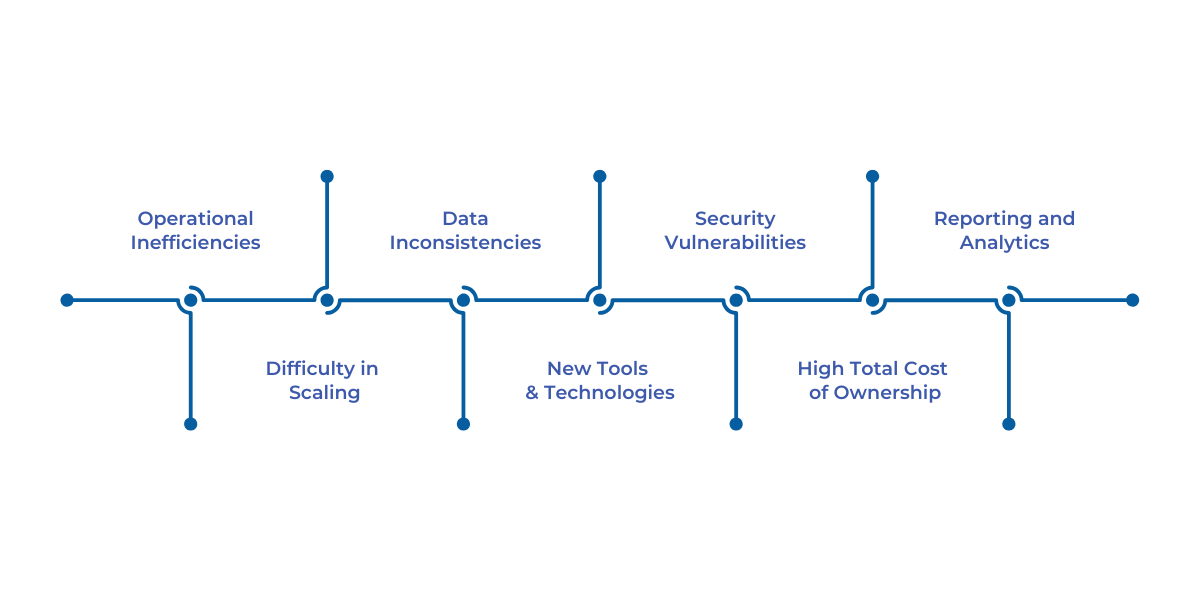
As businesses grow and evolve, relying on outdated software systems can become a major roadblock to efficiency, scalability, and competitiveness. If your organization is struggling with old ERP systems or fragmented solutions, it may be time to consider modernizing or replacing them. Here are the key signs that your business needs modern ERP software:
1. Increased Operational Inefficiencies
One of the most obvious signs that you need a modern ERP system is inefficiency in daily operations.
- Manual Data Entry: If your staff is manually entering data across various systems, errors are more likely to occur, leading to inefficiencies and additional time spent on fixing mistakes.
- Slow Processes: Processes like order management, inventory tracking, or financial reporting are taking longer than necessary, affecting customer satisfaction and internal operations.
Modern ERP systems streamline processes, automate routine tasks, and improve operational speed, allowing your team to focus on high-value activities.
2. Difficulty in Scaling
As your business grows, so do your operational needs. A legacy ERP system often lacks the scalability required to manage increased data volumes, more users, or new business processes.
- Limited Functionality: Your current ERP system can't accommodate new processes like e-commerce integration, AI-driven insights, or multi-currency support.
- Infrastructure Constraints: On-premise systems may require costly upgrades or additional resources to manage the growing demands of your business.
A modern ERP solution, especially cloud-based, can seamlessly scale to support your business as it expands, adding new users, functionalities, and capabilities without the need for major infrastructure changes.
3. Data Inconsistencies and Errors
If your business is still operating with disparate systems, there’s a good chance that data inconsistencies are causing problems. Legacy ERPs often rely on siloed databases, where data from different departments may not sync properly.
- Inaccurate Reporting: If your financial or operational reports are regularly inaccurate due to inconsistent data, it’s a sign that your current system is failing to provide reliable insights.
- Difficulty in Accessing Real-Time Data: In today's fast-paced environment, real-time access to data is crucial. If your system struggles to provide up-to-date information, it can hinder your ability to respond to market changes quickly.
Modern ERP systems centralize all your data in one place, ensuring consistency, accuracy, and real-time access across departments.
4. Poor Integration with New Tools and Technologies
As businesses adopt new technologies like AI, machine learning, and cloud-based solutions, having an ERP system that doesn’t integrate well with these tools can hinder progress.
- Lack of API Integration: If your system can’t integrate with new third-party applications or tools that your business needs, you're likely missing out on efficiency gains and innovative solutions.
- Incompatibility with Cloud: Legacy ERP systems, especially on-premise solutions, are often unable to take advantage of the flexibility, scalability, and cost savings that cloud-based tools offer.
A modern ERP system is built to integrate with the latest technologies, enabling smoother operations and helping your business stay ahead of the curve.
5. Security Vulnerabilities
As cyber threats become more sophisticated, maintaining the security of your business data is more important than ever.
- Outdated Security Protocols: Older ERP systems may not have the latest security updates or features needed to protect against new threats.
- Compliance Challenges: As regulations evolve, staying compliant with industry standards (like GDPR, HIPAA, etc.) becomes more challenging with legacy systems that aren't designed for modern compliance needs.
Modern ERP systems come with built-in security measures, regular updates, and compliance features that ensure your data is protected and meets regulatory standards.
6. High Total Cost of Ownership (TCO)
Another sign that you need a modern ERP system is if the total cost of ownership for maintaining your current system is becoming unmanageable.
- Frequent Maintenance Costs: If your system requires regular fixes, updates, or specialized support, it may be more cost-effective in the long term to invest in a modern ERP.
- Inefficient Use of IT Resources: Legacy systems may require significant IT support to manage and keep running, diverting resources from more strategic projects.
A modern ERP system, particularly cloud-based solutions, typically offers a more predictable cost structure and reduces the reliance on internal IT for ongoing maintenance.
7. Difficulty in Reporting and Analytics
Legacy systems often struggle with providing customizable reports, real-time analytics, or business intelligence features that are necessary for effective decision-making.
- Limited Reporting Options: If your ERP doesn't provide in-depth, customizable reports or insights into key performance metrics, you're at a disadvantage compared to competitors who are using more advanced tools.
- Slow Data Processing: If generating reports takes too long or the data isn’t presented in an actionable way, your organization may miss opportunities for improvement or growth.
Modern ERP systems are equipped with powerful reporting and analytics tools that provide real-time insights and help you make data-driven decisions with ease.
Once you've recognized the need for modern ERP, it’s essential to have the right partner to guide you through the selection and implementation process. Here's how WaferWire can help.
How WaferWire Can Help?
At WaferWire, we understand that selecting, implementing, and optimizing an ERP system can be a transformative yet challenging process for any organization. With our extensive expertise in ERP strategy, consulting, and implementation, we are here to ensure that your transition to a modern ERP system is seamless, efficient, and tailored to your unique business needs.
Our ERP Services Include:
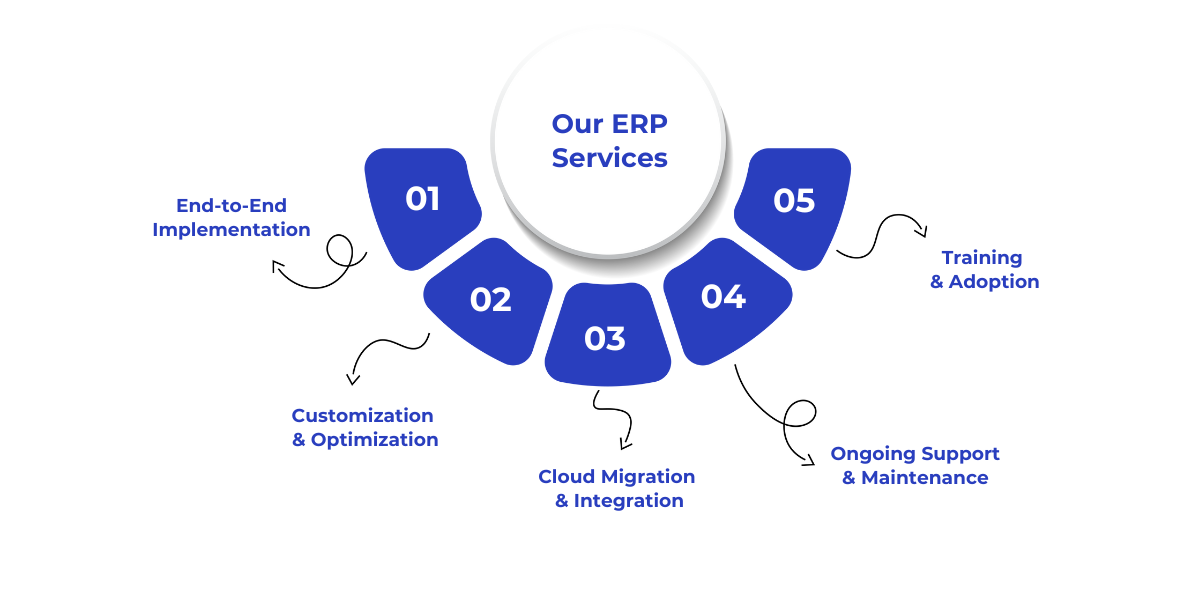
- End-to-End Implementation: From initial planning to deployment, we help you select the right ERP platform, configure it to align with your business processes, and ensure smooth integration with your existing systems.
- Customization & Optimization: Whether you need to customize workflows, dashboards, or reports, WaferWire ensures that your ERP solution is tailored for your specific industry and operational needs, maximizing efficiency and ROI.
- Cloud Migration & Integration: Leverage the power of cloud-based ERP solutions for better scalability and flexibility. We guide you through the migration process, integrating your new system with other platforms to ensure seamless operations across departments.
- Ongoing Support & Maintenance: Our job doesn’t end after implementation. WaferWire provides continuous support, ensuring that your ERP system runs smoothly, is up-to-date, and evolves with your business requirements.
- Training & Adoption: To help your team fully embrace the new system, we provide hands-on training and change management support, ensuring that employees at all levels can leverage the ERP platform effectively.
WaferWire is your trusted partner in making ERP adoption a success. Let us help you optimize your operations, increase productivity, and drive business growth with a tailored ERP solution.
Conclusion
A modern ERP platform can centralize data, automate processes, enhance collaboration, and provide real-time insights, ultimately enabling smarter decision-making and more efficient operations. By selecting and integrating the right ERP system, businesses can ensure they stay ahead of the curve and continue to drive growth and success in 2025 and beyond.
At WaferWire, we specialize in helping businesses navigate the complexities of ERP implementation, ensuring a seamless transition and long-term value. From selecting the right ERP solution to full implementation, training, and ongoing support, WaferWire is your trusted partner in digital transformation.
Ready to elevate your business with a modern ERP solution? Get in touch with WaferWire today and let us guide you through the process to ensure that your ERP system fully supports your business goals and sets you up for future success.
FAQs
1. How can an ERP system improve collaboration across departments?
ERP systems give a centralized platform where all departments can access real-time data, ensuring that teams collaborate more effectively. This integration eliminates data silos, ensuring smoother workflows and better communication.
2. What role does ERP play in improving customer service?
With integrated customer relationship management capabilities, ERP systems enable businesses to respond to customer inquiries faster, track interactions, and personalize services based on real-time data, ultimately improving customer satisfaction.
3. How does ERP help with business forecasting and planning?
ERP systems consolidate data from multiple business functions, providing accurate and up-to-date information that aids in forecasting. The real-time insights help businesses anticipate market changes, optimize inventory, and improve resource planning.
4. Are there industry-specific ERP solutions available, and why are they important?
Yes, many ERP systems offer industry-specific solutions designed to meet the unique needs of sectors such as manufacturing, healthcare, retail, and finance. These tailored systems ensure that industry requirements are addressed, including compliance and regulatory standards.
5. Can ERP systems integrate with other business tools like CRM or e-commerce platforms?
Modern ERP systems are highly flexible and can integrate seamlessly with third-party tools such as CRM systems, e-commerce platforms, and supply chain management software, enabling businesses to operate in a more unified and efficient manner.
Subscribe to Our Newsletter
Get instant updates in your email without missing any news
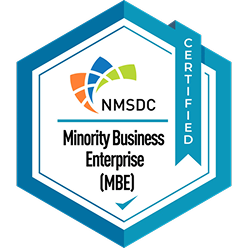
Copyright © 2025 WaferWire Cloud Technologies




.png)










